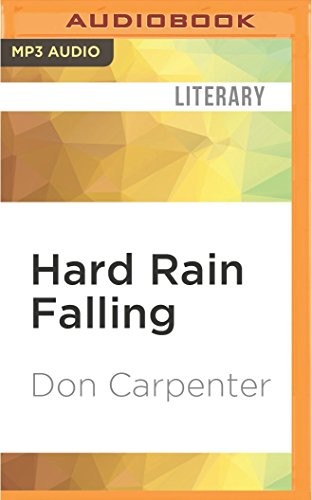Jim Brown reviewed Hard rain falling by Don Carpenter (New York Review Books classics)
the circumstances that launch a life
Have to assume this book opened some eyes with an interracial queer relationship in 1964. The end of that relationship is heartbreaking and beautiful. The first section had me thinking of Dennis Johnson, but that was short-lived. The book feels like it flirts with Beat writers a bit but is kind of hard to categorize. A number of set pieces had me wondering what kind of research Carpenter did on prisons and orphanages.
The story is told across four decades, and it begins with an account of how a random set of circumstances launches a life. In some ways the novel continues to lay out how this randomness (often the randomness of violence) shapes a life.
When the protagonist describes the sudden death by heart attack of the head of the orphanage, we get a lesson in power. The boys were cheering the death of this man who …
Have to assume this book opened some eyes with an interracial queer relationship in 1964. The end of that relationship is heartbreaking and beautiful. The first section had me thinking of Dennis Johnson, but that was short-lived. The book feels like it flirts with Beat writers a bit but is kind of hard to categorize. A number of set pieces had me wondering what kind of research Carpenter did on prisons and orphanages.
The story is told across four decades, and it begins with an account of how a random set of circumstances launches a life. In some ways the novel continues to lay out how this randomness (often the randomness of violence) shapes a life.
When the protagonist describes the sudden death by heart attack of the head of the orphanage, we get a lesson in power. The boys were cheering the death of this man who had terrorized them, but the was easily replaced:
"Very quickly there was another administrative head to the orphanage and he was different in appearance only. So it was intangible; not a man, a set of rules. It would not even do any good to steal the rules away from the office and burn them, because there wasn't even a book in which the rules were kept. It was just the authorities knew the rules. You could kill them all and the rules would remain. This was the great virtue of rules, they were told in somewhat different context
But, and this is what puzzled Jack now, once you grow out of this, once you learn that it is all nonsense, that what you thought as a child was nothing more than the excuses of self-pity, what did you replace it with? You had a life, and you were content with it; where did you aim it?" (114)

